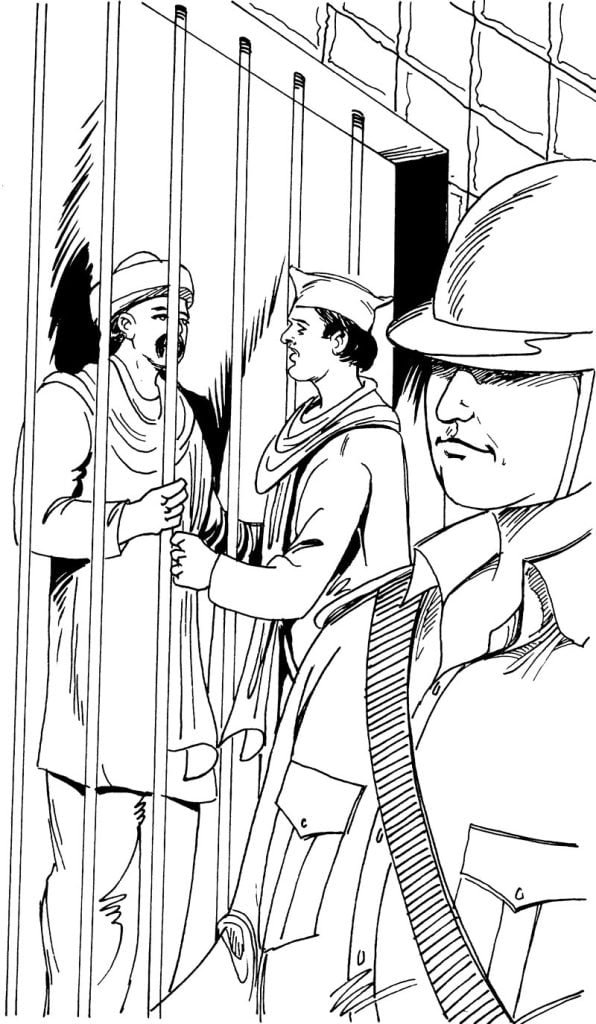Bal Gangadhar Tilak continued to attack the rulers through his newspaper and periodicals. He wrote some very critical and condemnatory articles against the British. In one article he called upon the people to rise in armed revolution against the foreign rule.
On 24th June, 1908 Bal Gangadhar Tilak was suddenly arrested.
A young lawyer, Mohammad Ali Jinnah submitted a bail application on behalf of Tilak. Judge Mr. Dabur rejected the plea.
Ironically, this Dabur character had been Tilak’s lawyer for ten years.
The trial began before a jury of nine members consisting of seven Europeans and two Indians.
Bal Gangadhar Tilak had to plead his own case as no good lawyer was ready to represent him due to antagonism and the fear of the retaliation by the authorities.

Tilak spoke for hours to deliver his arguments and the reasoning in his defence. The points raised by him were valid if viewed impartially and his defence was impressive.
But the fact was that the trial was a force. The jury members had already made up their minds and had no intention of lending ears to Tilak.
Tilak argued, “Until you don’t start giving us freedom, we shall throw bombs and we shall go on throwing bombs. It is a natural reaction…”
He closed his defence by declaring,“I am innocent. My objective is sacred, Perhaps God wills that I go to prison for the sake of my objective and for my ideals.”
The justice was the last thing expected from a British court. Tilak was sentenced to six years of jail term in exile.
The judge said, “You have mentioned the acts of the throwing of the bombs by the militants in a way that shows that such acts of violence is a normal political activity for you. Such journalism is a curse for the country. Hence, I order to arrange for you to stay in exile for the benefit of the same country you boast of being in love with so much. You get six year prison term for two cases and for the third offence you are fined to pay one thousand rupees.”
A large police posse guarded the court. No one was allowed to see Tilak although a big crowd waited outside. He was whisked away to the Railway Station to be taken to Ahmedabad.
The next day was Tilak’s birthday.
Bombay observed a strike to protest against the unjust punishment meted out to Tilak. The striking workers went violent. And the strike went on for six days. The rest of the country was also not calm. It was greatly agitated. Strikes, demonstrations and protest marches rocked the cities and the towns. The students were in angry mood. They boycotted classes to take part in demonstrations.
The judgement drew severe criticism from the newspapers. Even British papers ridiculed the government and hailed Bal Gangadhar Tilak as the true leaders of masses.
Indian newspapers carried editorials against the colonial rule in India.
British M.P. Lord Marley wrote to the Governor of Bombay—“How do I protest? Had you consulted me before putting Mr. Tilak on trial I would have advised you not to touch him.”
Attempts to appeal to the Privy Council bore no fruit.
Bal Gangadhar Tilak was put up in Sabarmati Jail temporarily. Then, after a lot of confabulations at official level it was decided to transport Tilak to Burma (Myanamar) to be imprisoned in the notorious Mandalay Jail.
On 21st September, as an after thought, the government of Bombay Province announced that in view of the advanced age and ill health of Bal Gangadhar Tilak, the sentence was being changed to simple imprisonment.

